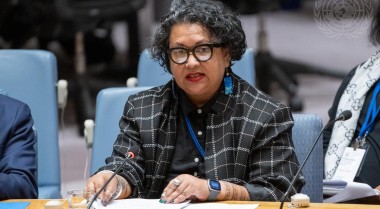Financing Peacebuilding: The added value of GPPAC’s locally-led network approach
Local peacebuilders play a critical role in building and sustaining peace. However, there is a dire gap in resourcing local peacebuilding work. That is why networks like GPPAC support their members not only in advancing peacebuilding policy and practice but also in navigating a complex financing landscape. We engage in the discussion with donors about the ways they fund peacebuilding and develop joint solutions to increase access to funds for local peacebuilders; and support initiatives like GPPAC that help increase their impact.
Challenges to funding peacebuilding: What did we hear from our network?
The grand potential of locally-led peacebuilding is not being fulfilled, in part due to current financing structures. Despite the fact that local peacebuilders are best equipped to work in complex conflict settings for sustainable peace, current funding mechanisms remain largely inaccessible to them, especially for women and youth.
The prevailing project-based, short-term nature of funding goes against long-term sustainable peacebuilding objectives. Moreover, the high administrative barriers, limited thematic- and geographical scope, and failure to meaningfully engage local experts all counteract the principle of local ownership and reinforce outdated traditional power relations.
GPPAC’s unique locally-led approach
Through our network, we have been able to mitigate some of these deficiencies in the funding environment. By acting collectively and learning from one another, GPPAC members have been able to efficiently increase their impact through joint action. We have also been able to provide members with small grants and flexible crisis funding that is not always available through a traditional grant-recipient relationship.
Five characteristics uniquely define the GPPAC network:
- We are a member-led network: Our members set the priorities for the network, globally and regionally. The Global Secretariat in The Hague facilitates multi-stakeholder exchanges and solidarity and supports network members in their work and on their own priorities, especially in their advocacy efforts, capacity building and coordinating the network.
- We are stronger together: Through the network, our voices are amplified and our position is strengthened. Under the pressures of shrinking civic space and shrinking funding for peacebuilding, we stand in solidarity with each other, share resources, and act together to increase our impact and efficiency.
- We have a wealth of experience and expertise: our network is made up of over 200 local peacebuilding organisations with in-depth knowledge of their contexts and conflict prevention and peacebuilding approaches. We exchange and learn from one another so that we can continue to grow and innovate.
- We engage with other stakeholders and work with them: Using our expertise and experience, we ensure that conflict prevention and response can be rooted in local ownership and knowledge; and an inclusive, human security approach.
- We catalyze global action: we work closely with Member States, regional organisations, the United Nations, peacebuilding experts and other like-minded civil society organisations to bring about inclusive and transformative peace and spark joint action.
Advancing locally-led peacebuilding
Through our unique approach, we have been able to advance locally-grounded, inclusive and sustainable peace. However, more support is needed.
We envision a future where the international community and major donors recognise the value of and actively engage with local peacebuilders from their own experiences through inclusive and locally-informed funding mechanisms. From GPPAC’s perspective, effectively funding locally-led peacebuilding means:
- Local peacebuilders make decisions on their own programming direction and funding opportunities they choose to pursue;
- Local peacebuilders put forth the goals, objectives and activities they are interested in pursuing;
- Donors and INGOs ensure local ownership and leadership over the implementation of these activities and allow for flexibility in response to shifting conflict dynamics.
- GPPAC facilitates advocacy opportunities, logistical and administrative support, and where needed, training on global agendas, fundraising and advocacy.
- Long-term programming required for sustaining peace is prioritised by donors.
- Donors support networks and platforms that link local peacebuilders and multiply their impact

